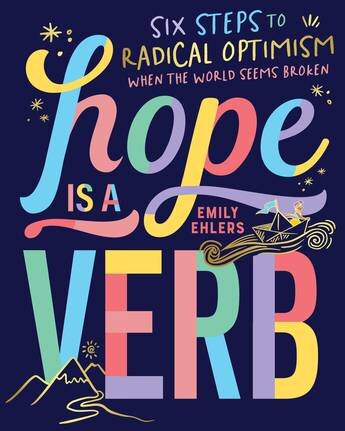
REVIEWS
Welcome to our Reviews section!
Here you’ll find short reviews of poetry and prose with a focus on hope and healing. We want this section to be diverse and to reflect the many meanings that hope and healing have for different people.
Why not write a review for The Rainbow Poems! We would love to hear from you at the usual email address.
OUR NEXT REVIEW WILL BE:
Jenny Robb’s debut collection The Doll’s Hospital
Yaffle Press, 2022
Raine Geoghegan’s The Stone Sleep
Hedgehog Poetry Press, 2022
ISBN: 978-1-913499-53-2
Website: www.rainegeoghegan.co.uk/the-stone-sleep/
From my first moment reading this lovely book, I had the feeling of being held, firmly but tenderly. Raine Geoghegan shows us a world where loss, fatigue, disability can feel like stone, but where comfort and release can be found in ritual, immersion in nature, family and community.
In Raine’s work, mythology and ancestry are ever-present. Her writing is rooted in Romani heritage and she lovingly invokes its language, culture and customs. In many places we sense the valleys of Wales, the quiet solace of nature. But in this collection the setting is sometimes contemporary or even urban, which as a regular reader of Raine’s work both surprised and delighted me. Of course, there are also visits to the places, events and characters of the past, with memory as a guide.
Speaking of guides, I especially loved the idea of the restless search, of guardians summoned from a diverse range of beliefs, observing and helping us along the way to our atchin tan (stopping place / home). These guides can be mercurial (especially the Hindu goddess of transformation, Kali Ma, who “waggles her long red tongue” and the female shaman, Shamanka). But they are also practical and powerful forces that help us deal with the Longo Drom (long road) of life. They accompany the women of these poems as they tend to domestic rituals: combing a child’s hair, griddling welsh cakes, picking flowers, giving birth, tending to the dead.
This collection focuses tightly on its theme of life’s journey and especially, life’s final chapter – as a mirror, a moon, a natural element. It is not a long book, which I think works well given the subject matter. However, this book is never “heavy”. In Raine Geoghegan you see a skilled and experienced poet in action: the language floats and comforts, as in the poem Tathagata – One Who Has Gone Before, like a “silver boat / on a calm lake”.
Raine is a treasure of the poetry community and she is hugely supportive of other writers. If you don’t already know her work, I would encourage you to seek her out. The Stone Sleep is available now from Hedgehog Poetry Press or direct from the poet (link at the top of this review).
Emily Ehlers’ Hope Is A Verb
Murdoch Books, 2021
ISBN (Australia): 978-1-92235-134-0
ISBN (UK): 978-1-91166-817-6
Website: www.murdochbooks.com.au
“Anxiety starts small, like pebbles thrown to get our attention. If you don’t pay attention, those pebbles turn into rocks, and then into boulders. If you STILL don’t react, you can be swept away in a landslide of apathy.”
First up, a disclaimer that I know that this book is not poetry! But is spoke so clearly to me of the anxieties that we often feel about our planet, the environment and the wellbeing of our families and communities, that I have made an exception and reviewed it. The clue to why, lays in the subtitle of this lovely book: Six Steps To Radical Optimism When The World Seems Broken. After the last 18 months of Covid, I felt a bit of radical optimism might be in order!
As some of you may know, before launching The Rainbow Poems, I wrote a blog called One Mum, about my personal crusade to rid my household of single use plastic. Taking this step towards a more planet-friendly lifestyle has stuck with me, but like many people, I still get that sinking feeling in the pit of my stomach about the future of this blue-and-green Earth of ours. Change is not just coming, it is here and it can be overwhelming.
This is where the wonderful artist and activist Em Ehlers comes into the picture. Through her online and real-world activism, she raises awareness of environmental issues but in such a joyful way that you never feel “dictated to”. In Hope Is A Verb, Em gives us insights into hope as an activity, a decision and a pathway: “For hope to be meaningful, effective and empowering, it requires your participation”. Small steps, simple things to build into our days, to build a sense of optimism.
The author doesn’t require us to have all the answers, but gently encourages us to acknowledge our fears and worries and the pain and damage they cause us. She shines a light on the survival process that goes on when we overload ourselves in “the cycle of doom” (fess up: who among us hasn’t scrolled on and on through pages of bad news stories on the web?). Once we have understood the mental and physical impacts of fear, we can move onto the other steps in the book, which provide useful ideas for managing and directing our anxiety into more useful endeavours. What can we learn from the way our children solve problems? How can we use our creative energy? How do we start to feel less like a tiny cog in a vast universe and more of a community with shared purpose?
If all this sounds quite earnest, you are not wrong - Em Ehlers believes what she says, passionately. But through the combination of her honesty about the author’s own experience, her beautiful illustrations and well-thought-through diagrams, the book shows rather than tells us - suggests rather than directs. I for one felt better after reading it, more equipped to take charge. I have a feeling this book will remain within reach on my bookshelf for a long time to come.
Ian Henery’s Poems Of Hope: The Greater The Storm, The Greater The Rainbow
Kate’s Hill Press, 2021
ISBN: 978-1-904552-61-1
Website: www.kateshillpress.com
The driving force behind Ian Henery’s collection is hope, in all its forms, even in changing and sometimes bleak times.
The poet takes us by the hand through the changing fortunes of the Black Country (in the UK’s midlands region), as economic, political and social events impact on individuals, families and communities. Through Ian’s writing, I learned about the history of this wonderful, diverse region of the country. But this collection goes well beyond the historical, discussing themes such as family, health and wellbeing, the legacy of grandparents and parents, the poet’s relationship with his wife and daughters, the importance of diversity and acceptance of the “other”, as well as the role community plays in protecting our most vulnerable. Of course, as a poetry collection put together in 2020, there is discussion of Covid; this is never maudlin, but strikes a positive note, seeking to show how communal action is needed to combat the virus.
I loved the combination of political and social commentary with the personal and emotional. But my absolute favourite poems amongst this substantial collection are probably the nature poems, with humankind never far away. Ian shows us the cuckoos and badgers that live on the edges of our communities and the sense of green space when you read these poems is palpable. The poet sounds place-names that are deeply ingrained in his sense of self, reassuringly familiar, almost like a mantra.
It was a pleasure to delve into this varied collection, think about it and revisit it, each time discovering new layers of interest. If you like formal poetry, there is much for you to enjoy here; if free-flowing performance poetry is your bag, again, Ian’s work is packed full of this (his work has often been performed as spoken word). Most of all, this is a personal collection which delivers on many levels.
Thank you to Ian Henery and the Kate’s Hill Press for providing a copy of the collection for review.
Kirsten Luckins’ Passerine
Bad Betty Press, 2021
ISBN: 978-1-913268-13-8
Website: www.badbettypress.com
Read more about this poet: www.narcmagazine.com/focus-kirsten-luckins/
A passerine is a perching bird which migrates, never stopping anywhere for long. In this wonderful collection, addressed as a series of letters or journal entries to a friend who has died, the poet Kirsten Luckins delineates a space for grieving, somewhere between the earth and sky, the real and remembered, grief and endurance.
Kirsten experiments with form in these poems, refusing to stick to a mournful, elegiac style. I appreciated this range, because it gives the reader so many ways of understanding the text and its meaning(s). Always ready with a telling detail, Kirsten gives us a masterclass in “showing not telling”.
The letter-journals describe passing clouds and seasons as well as human and bird encounters. This gives both a sense of continuity and of time and nature doing their work. In grief, focusing on little steps, tiny details, can be a way of coping. Sometimes, “slanting” your view a little can be a great thing - to access and examine a feeling, an emotion, a person, an event from a different perspective than you would usually take. This collection shows us how, with images of the wild, the tamed, the hunted, the devoured, the abandoned, sitting alongside and underpinning the main theme of grief for a lost friend.
At a crucial point in the collection, I reached a page on which sat a dark square. And only a dark square. I felt bleak in a way I couldn’t quite explain. I stared at the square for a long time, thinking my own thoughts. At that moment, a ray of scattered sunlight passed through my window and kissed the page. It’s these seemingly random acts of beauty – nature and man combining in unique ways, defying the struggle of daily life – that has stayed with me after reading this special book.
I would like to thank Kirsten Luckins and Bad Betty Press for kindly allowing me to read a review copy of Passerine. The launch event for the collection is on 25 February 2021 - tickets can be booked via Eventbrite here.
David Hanlon’s Spectrum of Flight
Animal Heart Press, 2020
ISBN: 978-1-79475-909-6
Website: www.animalheartpress.net
Email: animalheartpress@gmail.com
David Hanlon’s brave collection starts with an excerpt from Björk: “Don’t remove my pain / It is my chance to heal” (Björk, Notget). The theme running through David’s writing is the acceptance of self - not flinching away from the hard realities of acceptance or rejection by others, but being kind to yourself as you are.
David uses insightful and original imagery which surprises and informs in equal measure. In Swimming Lessons, there is a bluesy rhythm that delights as it shows us someone finding the strength to swim against a tide of expectation, bullying and criticism. In several poems, David plays with blank spaces to pull apart language, redefine it, take ownership of it. A physicality emerges as the collection progresses and the speaker transforms from “small bird to golden eagle”. The writing takes some risky leaps in form, spreading like wings.
There is often a duality to the poems, a discomfort in seeking love and human contact, that aptly reflects that Björk lyric. Yet the poet urges us to remember “When you were a child / who ran towards everything—” (Revive Yourself). What was it like, being that fearless? When did we learn to be scared of ourselves, our gender, our sexuality, our identity? Can we unlearn this fear?
I would like to thank David Hanlon and Animal Heart Press for the privilege of reading a review copy of Spectrum of Flight. It is a great thing to be transported by someone’s writing to an unfamiliar yet familiar place. I’m sure many of you will enjoy and appreciate this collection - please seek it out.








